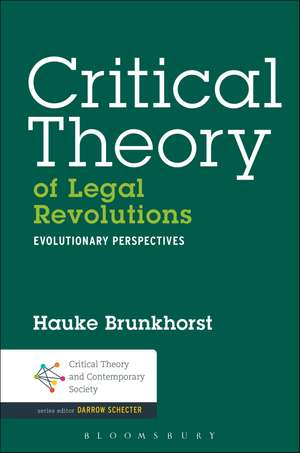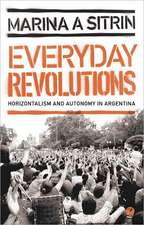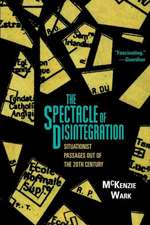Critical Theory of Legal Revolutions: Evolutionary Perspectives: Critical Theory and Contemporary Society
Autor Dr. Hauke Brunkhorsten Limba Engleză Paperback – 13 aug 2014
| Toate formatele și edițiile | Preț | Express |
|---|---|---|
| Paperback (1) | 278.94 lei 6-8 săpt. | |
| Bloomsbury Publishing – 13 aug 2014 | 278.94 lei 6-8 săpt. | |
| Hardback (1) | 955.28 lei 6-8 săpt. | |
| Bloomsbury Publishing – 13 aug 2014 | 955.28 lei 6-8 săpt. |
Din seria Critical Theory and Contemporary Society
-
 Preț: 208.70 lei
Preț: 208.70 lei -
 Preț: 345.05 lei
Preț: 345.05 lei -
 Preț: 155.55 lei
Preț: 155.55 lei -
 Preț: 206.64 lei
Preț: 206.64 lei -
 Preț: 177.90 lei
Preț: 177.90 lei -
 Preț: 155.23 lei
Preț: 155.23 lei - 23%
 Preț: 536.90 lei
Preț: 536.90 lei - 23%
 Preț: 536.99 lei
Preț: 536.99 lei - 22%
 Preț: 256.59 lei
Preț: 256.59 lei - 22%
 Preț: 257.21 lei
Preț: 257.21 lei -
 Preț: 278.32 lei
Preț: 278.32 lei - 13%
 Preț: 255.29 lei
Preț: 255.29 lei - 22%
 Preț: 832.65 lei
Preț: 832.65 lei - 31%
 Preț: 771.26 lei
Preț: 771.26 lei - 22%
 Preț: 889.88 lei
Preț: 889.88 lei -
 Preț: 237.75 lei
Preț: 237.75 lei - 13%
 Preț: 254.75 lei
Preț: 254.75 lei
Preț: 278.94 lei
Preț vechi: 315.92 lei
-12% Nou
Puncte Express: 418
Preț estimativ în valută:
53.38€ • 55.87$ • 44.43£
53.38€ • 55.87$ • 44.43£
Carte tipărită la comandă
Livrare economică 31 martie-14 aprilie
Preluare comenzi: 021 569.72.76
Specificații
ISBN-13: 9781623564186
ISBN-10: 1623564182
Pagini: 480
Dimensiuni: 152 x 229 x 33 mm
Greutate: 0.77 kg
Ediția:New.
Editura: Bloomsbury Publishing
Colecția Bloomsbury Academic
Seria Critical Theory and Contemporary Society
Locul publicării:New York, United States
ISBN-10: 1623564182
Pagini: 480
Dimensiuni: 152 x 229 x 33 mm
Greutate: 0.77 kg
Ediția:New.
Editura: Bloomsbury Publishing
Colecția Bloomsbury Academic
Seria Critical Theory and Contemporary Society
Locul publicării:New York, United States
Caracteristici
This Critical Theory and Contemporary Society volume focuses on legal theory and the current crisis
Notă biografică
Hauke Brunkhorst is Professor of Sociology and Head of the Institute of Sociology at the University of Flensburg, Germany. Previously, he was the Theodor Heuss Professor at the New School for Social Research in New York, USA. A political sociologist, he has authored many books, including Adorno and Critical Theory (1999) and Solidarity: From Civic Friendship to a Global Legal Community (2005).
Cuprins
General introduction 1 The evolutionary significance of revolution Introduction I The power of the negative: The take-off of social evolution II Normative constraints III Constitutions as evolutionary universals IV The evolution of modern society Conclusion 2 Class conflict and the co-evolution of cosmopolitan and national statehood Introduction I Cosmopolis as an evolutionary universal II Co-evolution of cosmopolitan and national statehood III Functional Differentiation and social conflict Conclusion 3 Legal revolutions Introduction I Papal Revolution II Protestant Revolution III Atlantic World Revolution IV Egalitarian World Revolution Conclusion Epilogue Index
Recenzii
This is an impressive book. It is only once or twice in every decade that a book appears which has the potential to fundamentally change our perspective on society: this book belongs to that category.
Critical Theory of Legal Revolutions is a provocative and timely work of great importance to anyone interested in legal development, constitutionalism, the dynamics of globalization and the social conflicts that trigger and are triggered by these. Brunkhorst argues that struggles over power, prestige, and position in multiple social domains trigger legitimacy crises that have revolutionary as well as long term evolutionary effects. The thesis is demonstrated through comprehensive, systematic historical analysis that ranges from the papal revolution of the 12th century to the egalitarian world revolution of our time. This is a must read for critical social theorists in every discipline.
Hauke Brunkhorst has resumed the work of critical social theory in a commanding style. In the tradition of Hegel, Marx, and Lukacs he seeks the objective possibilities with utopian implications, in the midst of constitutional and legal development, in his view ultimately structured by revolutions. He interprets the last legal revolution, the one in the post World War II epoch, as opening up the possibility of the complementary development of cosmopolitan and nation state identities. According to Brunkhorst it is the task of critical theory to uncover and support this new, revolutionary alternative.
A fresh look at the social evolution of modern law since the 'papal revolution' of the 11th century. The theoretical achievement of this path-breaking is the critical synopsis of observable increases in the complexity of social systems on one side, participant's socio-cognitive and moral learning processes on the other side.
Hauke Brunkhorst's brilliant new book overflows with theoretical insight, historical research and enlightened political radicalism. It conceptualises how moments of freedom and equality are both preserved and universalized within constitutional revolutions and it takes issue with reductive forms of thought that only consider law's disfigurements. In his refusal to discount normative progress, Brunkhorst brings to critical legal scholarship a distinctive, bold and fresh intellect.
Critical Theory of Legal Revolutions is a provocative and timely work of great importance to anyone interested in legal development, constitutionalism, the dynamics of globalization and the social conflicts that trigger and are triggered by these. Brunkhorst argues that struggles over power, prestige, and position in multiple social domains trigger legitimacy crises that have revolutionary as well as long term evolutionary effects. The thesis is demonstrated through comprehensive, systematic historical analysis that ranges from the papal revolution of the 12th century to the egalitarian world revolution of our time. This is a must read for critical social theorists in every discipline.
Hauke Brunkhorst has resumed the work of critical social theory in a commanding style. In the tradition of Hegel, Marx, and Lukacs he seeks the objective possibilities with utopian implications, in the midst of constitutional and legal development, in his view ultimately structured by revolutions. He interprets the last legal revolution, the one in the post World War II epoch, as opening up the possibility of the complementary development of cosmopolitan and nation state identities. According to Brunkhorst it is the task of critical theory to uncover and support this new, revolutionary alternative.
A fresh look at the social evolution of modern law since the 'papal revolution' of the 11th century. The theoretical achievement of this path-breaking is the critical synopsis of observable increases in the complexity of social systems on one side, participant's socio-cognitive and moral learning processes on the other side.
Hauke Brunkhorst's brilliant new book overflows with theoretical insight, historical research and enlightened political radicalism. It conceptualises how moments of freedom and equality are both preserved and universalized within constitutional revolutions and it takes issue with reductive forms of thought that only consider law's disfigurements. In his refusal to discount normative progress, Brunkhorst brings to critical legal scholarship a distinctive, bold and fresh intellect.












